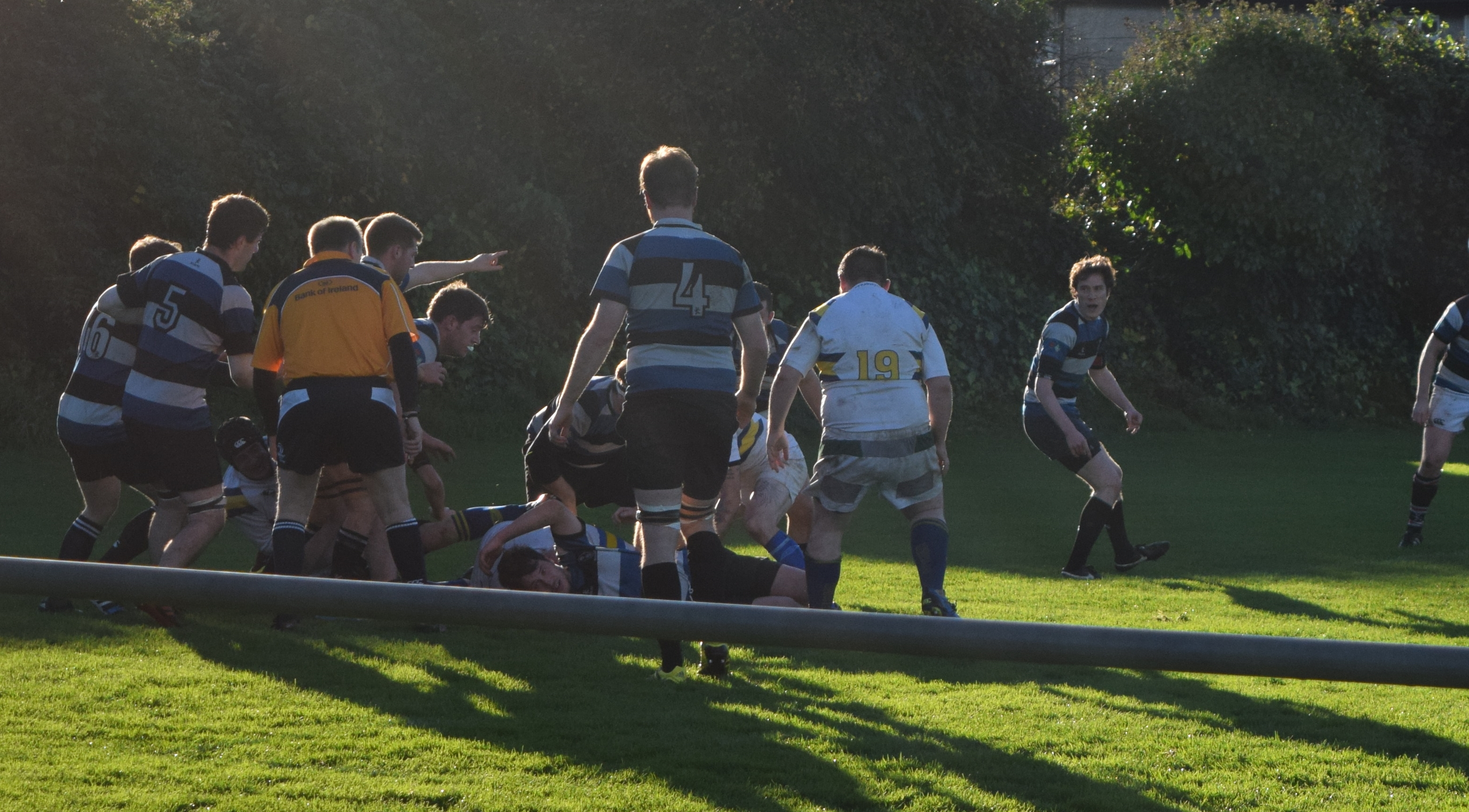Boardgames are made of two main things, mechanics and theme. Theme is often what attracts people, mechanics often what keeps people. When thinking of ideas I find mechanics more interesting but theme feels more real.
Rugby
So let’s start with a theme this time and think what mechanics could support it. Rugby is a game I started watching when I was about 16, and only started playing when I was 24. It is a sport I enjoy both watching and playing. It is game I know every well, and one I have not seen in boardgame form, though I’m sure there are some. Certainly games like Bloodbowl and Guild Ball take some inspiration from sports.
I very much enjoy Bloodbowl but it is a long game, and really only plays well over a campaign. Sports seems to fit the wargame model well, with individual miniatures, lots of stats per model, long play time etc. but this is not the type of game I want, I would prefer a boardgame, no fiddly miniatures, simple rules and a short play time.
First we need to lay out a little bit about the key aspects of the game of rugby. Then we can see what aspects could become mechanics in the game. The simplest way to describe rugby is a team game where the team with the ball is trying to run past the opposition and touch the ball down at the end of the pitch. You can only pass the ball backwards, or you can kick it forward. The opposition can stop the player with the ball by tackling them and pulling them to the ground. There are more details and rules so naturally there is a referee to insure both side play fair, this forms a key focus of the game, players trying to push the rules and the referee keeping players in check.
It was not going well for us (Blue and Black).
As a Boardgame
So what actions could we model in a boardgame? For start we need to decide do we try to track all players? Or just the player with the ball? Do we track each player’s position on the pitch or just general place of play? Rugby takes 80 minutes to play, so we clearly can’t model it precisely. My idea would be to create the a very simple game based on Rugby. Something that uses minimal components and plays in a short time.
So far I have a number of ideas. Play would revolve around the actions the player with the ball can take, run, pass or kick. The opponent tries to anticipate the action. Both reveal and then another mechanic is used to see if the action succeeds. Lets imagine its a simple play of some cards with numbers, highest wins. Here we have a chance to add the referee to proceedings, so for example if the player with the ball runs to hard (too high a number) maybe they drop the ball when they are tackled by the opponent. If the defender plays too high, perhaps they tackle dangerously and the referee penalizes them.
It would be too much to repeat this for every actual pass, kick or run that happens in a real game but instead it could model significant progress up the pitch. A rugby pitch is already divided into 4 sections between the two teams end zones. So we could do this run/pass/kick check as a way to move between each section, with successfully going beyond the last section considered a score.
We could divide up the pitch some more to create a simple area control game, so that when you have more players nearby some actions are easier or harder. Something simple like left, middle, right, as in Memoir 44. Kicking is clearly a better idea if the opponent has no players in the back half of their section. This gives a kind of area control or board position. Perhaps some movements might be automatic as play moves up and down the pitch.
7 aside with a hand of cards for each player.
One thing that is challenging with this is that rugby is normally played with 15 players on each side. 30 players is a lot actions needing to be managed. There is another variant of Rugby called 7’s, with 7 players on each side. This is a much faster game, usually only lasting 14 minutes. This game usually has more scoring than the normal game which again might suit a small faster boardgame better.
I think I have an interesting base for a game, but tying the two mechanics together is the challenging step. Players need some way to get cards, and fixed opportunities to move their players. Perhaps each model could have its own small set of cards, and the play is in positioning your fresher players against your opponents more tired players. In the 7 a side this would be more manageable.
Some of the problems a game like this might face are balance and engagement. Balancing a sports game can be hard as there is not an easy way to add catch up mechanics since the real things rarely have them. With an offence/defense system it can also lead to asymmetrical problems where defending is boring and if you aren’t playing well all you get to do is defend. So designing a system that compensates for this is also important.
I will have to think on this more, but there is already a lot here so I’ll leave it there!


